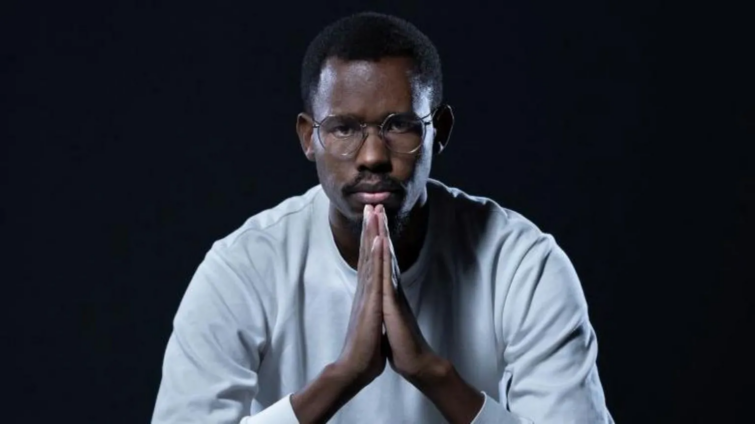Adani Exposé Figure Nelson Amenya Claims Secret Network Planning Ethnic Violence
NAIROBI, Kenya – Nelson Amenya, the whistleblower who exposed Kenya’s controversial Adani airport deal, has made explosive new allegations about a secretive political network allegedly planning to use ethnic violence and armed militias to influence the 2027 presidential election.
In a detailed exposé published on social media, Amenya claims that influential politicians close to President William Ruto are orchestrating a campaign to suppress certain ethnic communities, particularly targeting the Mt. Kenya region’s Kikuyu population and the recently included Kamba community in the GEMA cultural association.
The Allegations
According to Amenya’s account, the alleged scheme involves several high-profile figures, including shadowy presidential adviser Dr. Kipkoech Muge, First Lady Rachel Ruto, and MPs William Kamket, Oscar Sudi, Musa Sirma, and Kimani Ichung’wa. The whistleblower claims this group reports directly to President Ruto and has been actively working since June 2024 to manipulate voting patterns in key regions.
The most serious allegation involves the reported oath-taking of 50 Kalenjin warrior leaders on September 27, 2024, allegedly conducted by former MP Moroto and two other elders. Amenya claims participants were told the oath would bind them to defend the Kalenjin community against alleged aggression from the Kikuyu community.
Pattern of Political Violence
The allegations come amid a documented pattern of political violence in Kenya. Recent reports have highlighted the use of hired gangs against peaceful protesters, with organized criminals armed with whips and clubs, backed by police, unleashing terror on demonstrations commemorating the GenZ uprising against tax increases.
Kenya has a troubled history with election violence. Elections in Kenya are never just a matter of casting ballots, having been historically marred by ethno-political violence, exacerbated by vigilantes and militias deployed by politicians.
Government Response and Concerns
Notably, Interior Cabinet Secretary Kipchumba Murkomen recently issued a public statement about politicians buying weapons from across borders, which Amenya suggests indicates his allegations “may have hit a nerve.”
Human rights organizations have raised concerns about escalating political rhetoric. Tiaty MP William Kamket dismissed those calling for Ruto’s resignation through online satire as “lazy bones in bed” and warned that his side could extend Ruto’s term without facing any consequences, while Ruto allies have been sending chilling warnings to those planning to take part in protests.
Context of Rising Tensions
These allegations emerge as President William Ruto is embracing his political opponents to secure a second term in office in 2027, amid growing discontent with his government among some Kenyans. The president has been actively holding talks with politicians from the opposite side of the political divide, in a bid to consolidate support for his reelection battle.
Amenya’s Credibility and Safety Concerns
Nelson Amenya gained international recognition for exposing the multi-billion dollar Adani airport deal, which President Ruto subsequently cancelled after the Indian conglomerate’s founder was indicted in the United States. The JKIA-Adani deal whistleblower Nelson Amenya has been listed among the 100 Most Influential Africans of 2024 by New African magazine.
However, Amenya’s activism has come at a personal cost. The whistleblower says he has been receiving multiple death threats and like many Kenyan whistleblowers under threat, he fled to France after exposing the $2 billion scandal.
International human rights organizations have expressed concern about his safety. The Observatory for the Protection of Human Rights Defenders (FIDH-OMCT) expresses deep concern over the case of Mr Nelson Amenya, a Kenyan whistleblower facing harassment.
Verification Challenges
The serious nature of these allegations requires careful scrutiny. While Amenya has previously demonstrated access to sensitive government documents through his Adani exposé, the claims about militia recruitment and weapons caches remain unverified by independent sources.
The Kenyan government has not issued an official response to these specific allegations about ethnic militias and the 2027 election plot. However, the documented history of political violence in Kenya, combined with recent inflammatory rhetoric from some politicians, lends context to concerns about electoral manipulation.
Call for Investigation
Amenya’s exposé concludes with a stark warning: “We must firmly reject any scheme by powerful individuals to incite inter-community conflict as a pathway to power.” He argues that sovereign power belongs to the people, not to any individual or ethnic group.
The allegations, if substantiated, would represent a serious threat to Kenya’s democratic processes and inter-ethnic harmony. They call for thorough investigation by relevant authorities and underscore the critical importance of protecting whistleblowers who expose potential threats to national security and democratic governance.
As Kenya approaches the 2027 election cycle, these claims highlight the ongoing challenges facing the East African nation in maintaining peaceful, democratic transitions of power while protecting vulnerable communities from political manipulation and violence.
The Kenyan presidency and the named politicians have not responded to requests for comment on these specific allegations.
There's no story that cannot be told. We cover the stories that others don't want to be told, we bring you all the news you need. If you have tips, exposes or any story you need to be told bluntly and all queries write to us [email protected] also find us on Telegram

